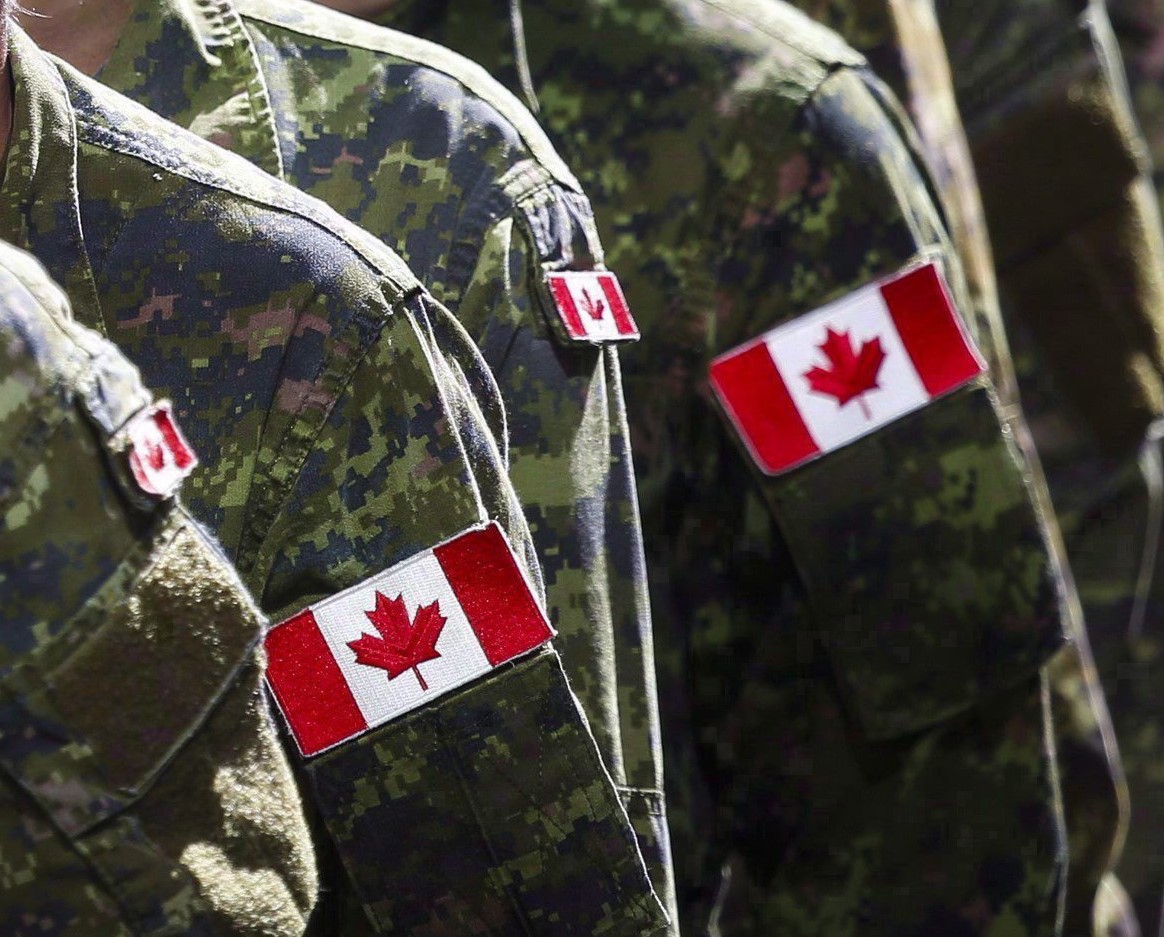Canada News
Census figures paint statistical portrait of Canadian military members, veterans

Members of the Canadian Armed Forces march in Calgary on July 8, 2016. THE CANADIAN PRESS/Jeff McIntosh
OTTAWA — More than four in 10 military veterans counted in the latest census were seniors aged 65 and older, but almost one-third of former service members were in the core working age group of 25 to 54.
There were 97,625 Canadians serving in the military last year and another 461,240 former members, according to the new census data released Wednesday by Statistics Canada.
The figures also show currently serving personnel were younger on average than the employed population overall, and almost one in five were women.
The 2021 census asked Canadians about previous service in the Canadian Armed Forces for the first time since 1971.
Comprehensive data on veterans can help ensure proper allocation of money by the federal government for former members, their families and other program recipients.
Non-profit organizations that assist veterans also require information about the demographic makeup of former Forces members and where they live to better meet their needs.
Until now, the available data sources included historical census records from 1951, 1961 and 1971, as well as a variety of incomplete administrative data.
Statistics Canada has worked in recent years with federal agencies and others to paint a fuller picture of veterans, looking at their overall health and well-being.
However, the scope has frequently been limited to contemporary veterans who were released from military service after 1998.
The new figures will provide needed information about veterans who served in the former Yugoslavia in the early 1990s, the Korean War and the Second World War.
The resulting list of veterans is to be retained by Statistics Canada and used solely for analytical and statistical purposes, through which no individual veterans could be identified.
The census count of veterans turned out to be lower than modelled estimates produced by Veterans Affairs Canada. Statistics Canada suggests several factors may account for this, including the basic difference between the two methods as well as the fact the census provides a snapshot of the population at a specific time, May of last year.
Veterans made up 1.5 per cent of the total population aged 17 and older last year. The highest shares of veterans among the overall population within Canada’s census metropolitan areas were found in Belleville-Quinte West (4.5 per cent), Halifax (4.4 per cent), Kingston (4.0 per cent), Fredericton (3.8 per cent) and Saint John (3.5 per cent).
Among the other findings:
— nearly one in six veterans were women, and their average age was lower compared with men veterans;
— 33,420 veterans were aged 85 or older;
— veterans were more likely to live alone than Canadians aged 17 and older overall.
Groups that work with veterans welcome the census data, saying it should help better serve former members.
The Royal Canadian Legion says it will be important to connect the numbers to where veterans live, so that those who assist them can focus on areas where there is a larger concentration and help ensure services are accessible in those regions.
The census data will be “a very rich source of information,” said Nick Booth, chief executive officer of the True Patriot Love Foundation, which funds an array of programs that help veterans with everything from physical well-being to acquiring business skills.
The needs of veterans vary depending upon where they live, Booth said. “So understanding where veterans are and how they are progressing through their journey of transition into civilian life will make it much more efficient in terms of allocating our funding,” as well as money from other agencies, he added.
Given that many military bases are in rural areas, departing members might find themselves in remote locations, Booth said.
“And often that means that there aren’t services immediately available. And so it’s very important that we understand where there are service gaps and help fill those.”
The census data could help provide valuable insights about the mental-health needs of former members, including those at risk of suicide, said Tim Laidler of the Veterans Transition Network.
The organization helps veterans make the move to civilian life, noting that those who have trouble doing so are vulnerable. It leaves many feeling isolated from the world and saps the strength they need to deal with depression, post-traumatic stress or substance abuse, the transition network says.
Laidler, who served with the army in Afghanistan, recalls the days when many believed suicide was not a big issue among Canadian military members.
“But a large part of the problem was they were only looking at people who are still currently serving who committed suicide, and nobody was tracking the veterans,” he said.
“So when you actually looked at the veterans and those serving in the military, you realized that there was a much higher percentage of people committing suicide and it was, in fact, a big problem.”
According to the new figures, members of the Canadian Armed Forces were younger on average — 36.2 years old — than the employed labour force overall at 41.9 years.
Ontario (35.4 per cent) and Quebec (20.2 per cent) had the highest shares of currently serving military personnel.
The census defined military experience as service with the regular force or the primary reserve force. It did not include service with the Cadets, Cadet Organizations Administration and Training Service instructors, or the Canadian Rangers.
Statistics Canada says complementary efforts will be made to produce statistics for these important groups through the use of administrative data.
This report by The Canadian Press was first published July 13, 2022.
— With a file from Lee Berthiaume
Jim Bronskill, The Canadian Press





















